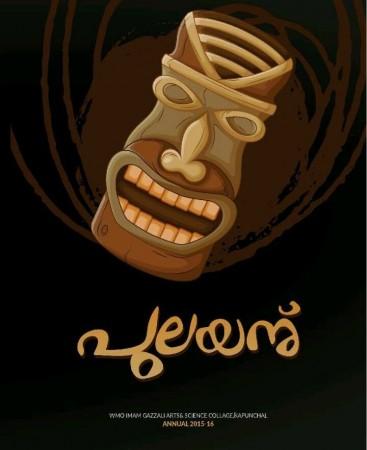
When the students of Imam Gazzali Arts and Science College in Koolivayalil, a nondescript town in Kerala's Wayanad district, selected 'Pulayanu' (meaning 'For Pulayan') as the name of their annual magazine, little did they know that they were courting trouble.
Pulayan is a Scheduled Caste in the state, and the association of the magazine's name with that of the caste has landed the students in rough waters. Their 'dream', as they saw it, was a series of features they thought would highlight some of the prejudices and misconceptions inherent in society. But after all their hard work, they are now left facing a completely conflicting view of the management of the institution. The management is not buying into their argument, insisting that the students rename the publication or forget about it all together. The new stance comes after the principal is said to have earlier given his nod.

So what brought the turnaround — the fear of legal censure or the community's backlash? The Pulayar community mostly lives in Kerala, with pockets of them found in Karnataka and Tamil Nadu. In most parts of Kerala, the use of the word has always stirred outrage as many consider it derogatory. In fact, even Wikipedia refers to the Pulayar (also Pulaya, Pulayas, Holaya, Cherumar, Cheramar and Cheraman) as an untouchable caste. In the past, many have raised their voice in the state, questioning the usage of the word. There have been instances of resistance amongst members of the community who often feel ridiculed in the society.

According to the Scheduled Caste and Scheduled Tribe or Prevention of Atrocities Act, 1989 that the management of the college is using to back their stand, a deliberate insult to the members of the communities or humiliating them in public is a non-bailable offence.
International Business Times, India spoke to some lawyers in the state and the opinion remains divided. While some believe the management of the college is justified in its decision since the use of the word is prohibited, others insist that giving a publication a name is different from calling or insulting a member of the community. Many others believe that the use of the term could stir a conflict should members of the community decide to interpret it otherwise. This begs the question: Can the use of a term be objected to when it does not hurt or harm the feelings or the sentiments of a community?

A glance at the contents of the publication vindicates the students' argument. Some of the articles featured give a voice to the common man. According to Muhammed Jazeer, the student editor of the magazine, "Pulayan means the 'children of the soil' and going by the same definition, we all are 'Pulayans'. Pulayan should not be offensive and why do we get offended when we say Pulayan and it is not a bad thing after all."
Our calls to the principal remained unanswered. In the meantime, the students who worked hard to bring out the magazine may be forced to hold on to their thoughts about 'Giving a voice to the voiceless'.

















